Richmond Fontaine - Interview
by John Clarkson
published: 23 / 7 / 2007
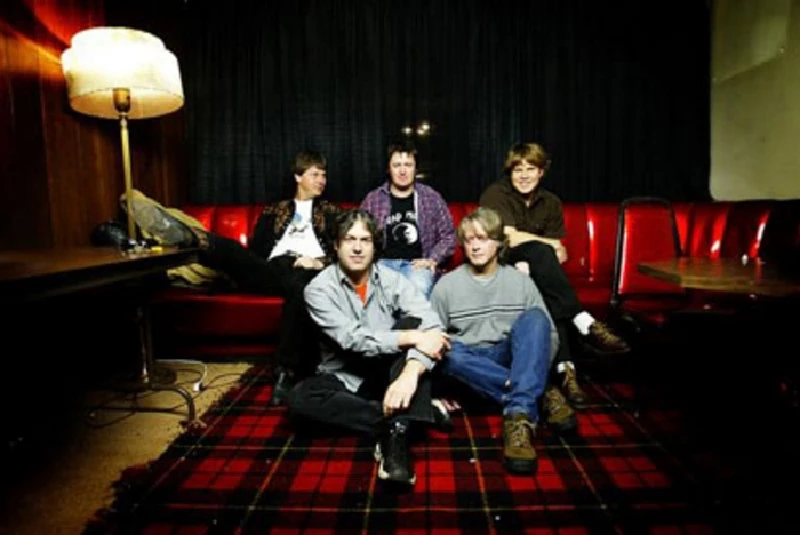
intro
'Thirteen Citiees' is the recently released latest album of Americana act Richmond Fontaine. Vocalist Willy Vlautin and bassist Dave Harding speak to John Clarkson about it and why they decided to relocate from their base in Portland, Oregon to Tucson, Arizona to record it
When Pennyblackmusic first spoke to singer-songwriter Willy Vlautin and bass player Dave Harding in mid 2002, their group Richmond Fontaine was attracting good reviews both for its latest album, ‘Winnemucca’ and also for its live shows up and down the western strip of America. At that stage the Portland, Oregon-based band, however, had yet to make any impact in Europe. Richmond Fontaine’s next album, ‘Post to Wire’, was set to change that. Produced by acclaimed veteran producer JD Foster, who had worked as a producer and a musician with the likes of Richard Buckner, T-Bone Burnett, Green on Red and Patty Griffin, it attracted the attention of the influential British monthly music magazine ‘Uncut’, who until then had never heard of Richmond Fontaine, but in May 2004 promptly made ‘Post to Wire’ its Album of the Month. A decade after it had first formed in 1994 when Vlautin, who had recently moved from his home town of Reno, met Harding at a Portland horse racing track, Richmond Fontaine went from being little known beyond America’s west coast to a sudden international concern. A brief UK tour was hastily arranged which only Vlautin and the band’s newest recruit, guitarist Dan Eccles, who had joined Richmond Fontaine between ‘Post to Wire’ being recorded and released, could attend, the others members of the group-Harding, pedal steel player Paul Brainard and drummer Sean Oldham-all having to stay in America because of other work commitments. A full UK tour featuring all of the group, except for Brainard, took place later that year, and the band has since then gone on to tour Britain and Europe several times. Richmond Fontaine had released three previous albums, ‘Safety’ (1996), ‘Miles From’(1997) and ‘Lost Son’ (1999) on a local Portland label Cavity Search Records, before putting out ‘Winnemucca’ and ‘Post to Wire’ on their own El Cortez label. While ‘Winnemucca’ was a brooding and atmospheric ambient album which pushed Paul Brainard’s pedal steel to the fore, and ‘Post to Wire’ was a part melancholic, part breezy country rock record, their sixth album ‘The Fitzgerald’, another ‘Uncut’ Album of the Month when it was released in May 2005, found Richmond Fontaine moving on again. It was in contrast a Springsteen-esque/’Nebraska’-style stark folk record. Richmond Fontaine’s seventh album, ‘Thirteen Cities’, which like its two predecessors was released on El Cortez and was produced by JD Foster, came out in February of this year. The band moved from Portland where they had recorded all their previous albums to Craig Schumacher’s Wavelab Studios in Tucson at the edge of the Arizona desert. The band’s most versatile album to date, ‘Thirteen Cities’ flits through a whole range of styles which includes Mariachi numbers, the blues, ambience, abstract jazz, rock, and piano ballads. Always a central point of any Richmond Fontaine album, the literate blue-collar narratives of Willy Vlautin’s lyrics, whose first book ‘The Motel Life’ was published to great critical acclaim in 2006, break new ground. They tell of a group of largely anonymous characters drifting through the south western desert territories and passing often briefly through the thirteen cities of the title (Tucson, Phoenix, Mojave,, Spokane, Laramie, Yuma etc). The opening track, ‘Moving Back Home #2’, is about a man forced to move back in with his mother after several years away, while ‘$87 and a Guilty Conscience That Gets Worse The Longer I Go’ tells of a pair of ne’er-do wells driving through the desert and getting into a succession of scrapes, before falling out when one of them develops a conscience over an under-aged and damaged girl they have picked up. The narrator of ‘A Ghost I Became’ decides to run off into the desert, while the title character of ‘The Disappearance of Ray Norton’ gets in with a bunch of racist skinheads and then passes from sight after being involved in a stabbing. Only the last track ‘Lost in This World’, in which its main character, torn up with guilt and shame after an incident in his past, finally phones home offers more hope. Richmond Fontaine have had a difficult day when Pennyblackmusic meets up with them for a fourth interview at Edinburgh’s Bongo Club at the end of May on the penultimate night of their second UK tour of the year to promote ‘Thirteen Cities’. They have been in Wolverhampton the night before, and what was supposed to be a five hour drive has turned into a nine hour ordeal, after an accident on the motorway has left them stuck in traffic for most of the day. They arrive just half an hour before their support act, Bob Frank and John Murry, who are sharing a van with them, are due on stage. After unloading their equipment and a speedy sound check (“Not the fastest, but definitely in the Top Ten” Dave Harding quips), both Vlautin and Harding, the regular spokesmen for the band, are, however, pleased to chat. We sit in the small dressing room and talk about ‘Thirteen Cities’ and the group’s increased confidence. PB : You have described this album as your south western album. How many of the songs were written before you knew you were going to Tucson to record them and how many afterwards ? WV : Two or three, perhaps four, were written beforehand. The rest were directly inspired by that fact that we knew we were going there to make a record. Dave and I had always wanted to record an album at Wavelab Studios, and JD Foster, who produced ‘The Fitzgerald’ and ‘Post to Wire’, really wanted to go there too because he is good friends with Craig Schumacher, the guy who owns it. When we knew we were going down there, I was really excited to think that we were going to record an album in a different place than Portland where we have recorded all the other records and so I wrote a bunch of songs that I thought would fit that area. I really wanted to have a record in which you could look through the Richmond Fontaine album and go “Oh, that’s their Tucson/desert record.” We wanted to get the feeling of the place and I hope we did. PB : A lot of classic albums have been recorded at Wavelab Studios. Steve Wynn, Giant Sand, Calexico and Richard Buckner have all recorded there. Did you go there because all these great albums have been made there ? WV : Yeah, definitely . I am a huge fan of ‘Devotion and Doubt’, the Buckner record. Dave is a huge fan of Giant Sand too. I don’t know as much about them as him, but I am a big Calexico fan. The Neko Case records which I also really like were recorded there. We knew Craig Schumacher a little bit. I have known him off and on because he is friends with a guy in Portland that I know. I had stopped off at Wavelab before when we were on tour. It had a good feel to it and seemed like a fun place and somewhere that would be both inspiring and different in which to make an album. PB : How long were you down there ? DH : It was about a month. PB : It is not always clear which of the ‘Thirteen Cities’ you are writing about in each song. The situations a lot of the characters find themselves in could happen pretty much anywhere. You don’t think “That one is taking place in Tucson and that one is happening in Phoenix.” Did you keep the locations, while set in the South West, deliberately vague as you wanted to give their stories a universality ? WV : That was what I was getting at. We were hoping that ‘Thirteen Cities’ would imply a kind of aimlessness. The guys in the songs are all rootless. They are all hoping to find something that is better than what they have. They’re all looking for something down the road instead of trying to figure out why they’re running away and what they’re running from. There is also this idea in ‘Thirteen Cities’ that cities are kind of interchangeable in the US. Every city is starting to look the same. Everything is being built with all these chains, and all the stores are the same. The more time goes on the harder it is to recognize the difference between cities sometimes. There are still a few old mom and pop kind of places, but the mom and pop places seem to be falling away. PB : ‘Thirteen Cities’ runs through a whole range of moods and styles. Your last album, ‘The Fitzgerald’, was a folk record. Was ‘Thirteen Cities’ recorded in contrast to that and was the intention this time to be as diverse as possible ? WV : I think the band gets more confident as it keeps going. We have never been a real confident band and so we are slow bloomers in that sense. We have got more confident in recent years though. That was why we did ‘The Fitzgerald’ the way we did it because we thought “Why not make a stark, really raw record ?” and with this one we wanted to make a bigger, grand record and one that had in places a soundtrack atmosphere. The band has grown a lot over the years. Our drummer, Sean Oldham, can play in any style. It is not whether he can do it, but whether we can do it (Laughs). He is a really bad ass, great musician and that has given us the opportunity to do whatever we want. PB : To pick up on your point about getting more confident and the fact that you’re still growing as a band, do you think that is one of the reasons why you have stuck together for so long ? WV : Being in a band is like being in any relationship. If you can see it getting a little bit better down the road-it doesn’t have to be much better, just a little bit like with a marriage or a job - then your heart stays with it. For me the facts that the band brings some happiness to the other guys and that we are playing a little bit better shows than we used to and getting to see different cities and people like our records is enough to keep me making to want to get into the tour van. A band is a fragile thing like anything else though. You never know what is going to happen. PB : This album features a lot of Paul Brainard on pedal steel. He has been a member of the group since 1999 and ‘Lost Son’ and toured with you in Europe for the first time in March and is also on this tour, yet he is credited as a guest musician on the record. What is his role in the band ? WV : (Laughs) Paul has always been on the records. He is an amazing musician and a good friend to us all of us. The only reason why he is not with us all the time is that he does a lot of session work and has got a lot of other projects on the go. He tours with the Sadies sometimes and he has also toured with Alejandro Escovedo. We had to keep going when he couldn’t go and that is one of the reasons why we got Dan in on guitar, so that we could continue to do shows when Paul couldn’t because his schedule is so tricky. Dan puts in a lot of work into the day-to-day aspect of the band and Paul is too busy to do that. He is a pretty in demand guy. PB : The album features appearances from the likes of Joey Burns and Jacob Valenzuala from Calexico and Howe Gelb from Giant Sand(All live in Tucson-Ed). How did they become involved ? WV : JD had done the Calexico record, ‘Garden Ruin’, and both Jacob Valenzuala and Joey Burns were in town. Those two guys frequently drop beside the studio. It has got a real community vibe to it. We wanted Jacob to do a song and he ended up coming by and ended up appearing on two of them , ‘Moving Back Home #2’ and ‘The Kid from Belmont Street’ After we had been down there a couple of weeks JD asked Joey to come by and listen as he wanted Joey and me to do ‘Lost in This World’. That was great because he had some really great ideas. He is a really great arranger and a pretty amazing musician. It was a great honour to work with him. Howe Gelb was just a fluke. He was coming by to get something from the studio…. DH : He just stopped in and we were working on ‘$87 and a Guilty Conscience…’ He rehearses in that same building and he is in and out a lot and he came in to get something and Craig Schumacher , who was doing the engineering, said “Do you want to play piano on this ?” It was totally spontaneous and Howe was like “I only have 15 minutes. My wife has dinner waiting for me at home.” He had never heard the song before, but he went in, put the headphones on, set the piano and did it in the first take. It was unbelievable. And then he was like “I’ve got to go” (Laughs). It was cool. PB : Some of the tracks on this album such as‘$87 and a Guilty Conscience That Gets Worse The Longer I Go’ and ‘I Fell into Painting Houses in Phoenix, Arizona’ have unusually long titles. Was that a conscious decision to make them so long ? WV : I have always really liked long titles. The bigger they are the better they get. The guys in the band hate them. They don’t understand it at all. They’re like “Why do you have to name it that ? Why can’t you just name it ‘$87’ ?” DH : (Laughs). WV : And I will go “Because it’s not really about $87.” I love when you look on records and they will have some really long title and you are like “I really want to listen to that one because why would they want to name it like that?”. I would try to listen to a song like ‘‘$87 and a Guilty Conscience That Gets Worse The Longer I Go’ just out of curiosity (Laughs). I figured after seven records I could start titling them the way I wanted to. PB : Where did the inspiration for ‘Moving Back Home #2’ come from ? Did you come across a guy that had been forced to move back in with his parents ? WV : I wrote ‘Moving Back Home #1’ which didn’t make the record and then ‘Moving Back Home #2’. Both of those are basically about me. I moved back in with my Mom because I was going through a hard time and like the song says I would stay out until four. My poor Mom had to get up six and she would worry all night about where I was. I would come home barely able to walk and having driven home and it went on and on until, like a good mother should, she kicked me out (Laughs). The only fabrication on that that is the guy in it puts a bet on a pick 3. I have never backed a pick 3. PB : What about A Ghost I Became' ? WV : That song is about working the same job year after year and starting to crack and want to disappear and to change your whole life. I have got lucky lately because I haven’t had to work much because of the band, but I used to feel like that all the time when I used to work as a house painter. I would get really dramatic about things. When you get to my age and in your late 30’s, it seems that you either come to peace with yourself or you crack. I would sit there and I would plan all day long. I would think to myself I’m going to sell everything and I’m going to get this much money and then I am going to move to the desert somewhere. That was always a big release, a big escape valve, for me-the idea of running off to the desert. In the song the guy actually does it. PB : What about ‘The Disappearance of Ray Norton’ ? Did you know a Ray Norton type character ? WV : Sure. It wasn’t that dramatic though. I felt that if I was going to do an album about the South West and the West it would be hard to do without writing about racism and Mexican immigration. In my home town of Reno there are parts of town which in the space of five or six years have become like Little Mexico. Any time a big group of people move into a city there are problems. It happens in Europe as well. I grew up with a bunch of guys that were construction workers and they would start blaming the Mexicans for their problems because a lot of other contractors would hire Mexicans illegally. They would, therefore, under bid my friend’s companies that were doing everything above board. Whoever was building wouldn’t want to know. It wasn’t their responsibility who the sub-contractors were hiring. A lot of these construction workers, therefore, felt that they were losing jobs and their wages were being kept down because of the illegal immigrants. You would be hanging out with guys who you had known your whole life, guys who had gotten you out of jams, and guys who had been your good friends and all of a sudden they would start saying some pretty dark, racist things. They were scared and worried, but at the same time it was frightening to be around. You feel that you can’t turn you back on your friends but at the same time you don’t want to be around that, and so that is what that song is about really. I had friends who the older they got the more they reverted to having these real narrow, redneck, racist views. After a while you have got to let those kind of guys go. PB : You deal with some pretty bleak subject matter on ‘Thirteen Cities’, but like ‘The Fitzgerald’ it ends on a note of more hope. ‘Lost In This World’ seems dark on the surface but the guy in that at least finds something in himself to actually phone home. WV : I am glad that you have picked up on that that because some folk think that is the saddest thing on the whole record, but I agree with you. On ‘Lost in This World’ the guy in that is finally saying “I am having a hard time”. He is calling whoever he has got to call, whether it is girlfriend or his brother, and he is saying “Look. I am lost. Maybe I am too sensitive. Maybe I haven’t been able to get over things, but I need help.” To me that shows up all the other guys on the album who are trying to make amends by running away, because this guy hits rock bottom and then realises that he has to go back to the people he cares about to get by. The guys previously haven’t quite figured that out yet (Laughs). PB : Dave, you spent a week before this tour touring with a band called the Jimmy Cooper Club in Italy. Who are they ? DH : They’re lead by this guy called Stiv Cantarelli who is also in a couple of other bands called Satellite Inn and Gold Rust. They’re Italian bands. Stiv is a great guy. He has a great love for American and British rock ‘n’ roll. PB : How did you become involved with him ? DH : Satellite Inn played in Portland with us six or seven years ago. He has alwyas been a big friend to Richmond Fontaine. He tried to bring us over to Italy three of four years ago and then I ran into him two years ago at South by South West in Austin. He told me that I was his favourite bass player in the world (Laughs) and if I was in Europe he would fly me to Florence to do some recording. That was an offer I couldn’t refuse and so I went down there a year and a half ago and I recorded four songs with the Jimmy Cooper Club. They have a kind of the Stooges meets the Who rock ‘n’roll sound and so from that I got to go and play a couple of shows with him and his drummer Marco, who is like an Italian Keith Moon and we had a lot of fun. PB : You’re also working on a solo record, aren’t you ? DH : I am working on a record of my own songs with Mike Coykendall, who has engineered and played on a lot of Richmond Fontaine records in the past. It has been a lot of fun and I am just finishing it off. It should be out some time next year. PB : Willy, you published ‘The Motel Life’ to great acclaim last year. You are apparently going to be publishing a second book. WV : It is called ‘Northern Line’. PB : What is that about ? WV : It is about a girl who lives in Las Vegas and she runs away to Reno. It is set in a similar world to ‘The Motel Life’. It is about the struggles of this 24 year old girl trying to get by. PB : Is that going to come out like ‘The Motel Life’ on Faber and Faber ? WV : Yeah. It is coming out in February or March of next year. I have also written an instrumental soundtrack for it with Paul Brainard. With books you never re-read them very much but you think about them a lot. I listen to the soundtrack for ‘Paris, Texas’ all the time and that is what gave me the idea. When I listen to ‘Paris, Texas’ I always think about that movie and so I thought maybe if write a cool soundtrack and people like the music then maybe they’ll think about the book. It looks about 75% sure that Faber and Faber are going to be releasing it along with the book. PB : What else have you got planned for the future ? DH : Richmond Fontaine is going to be doing some mixing and recording for an EP which we are working on for the Fall. WV : It is like a continuation of those Tucson tracks. We had three or four songs that didn’t make the record, and they’re going to go on that. A friend of ours documented a lot of that session and he is also supposed to be doing a DVD for it. PB : Thank you very much for your time.
Band Links:-
http://richmondfontaine.com/https://www.facebook.com/Richmond-Fontaine-100281195567/
https://twitter.com/rffontaine
Have a Listen:-
Picture Gallery:-
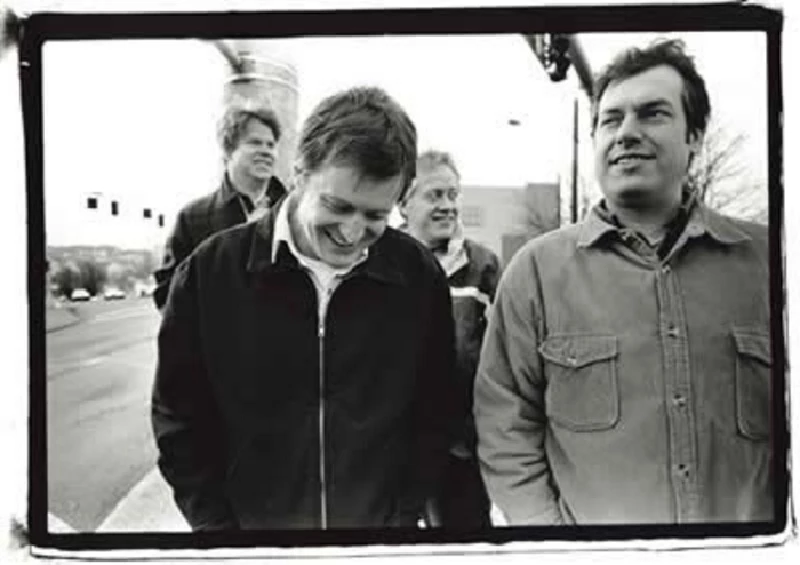
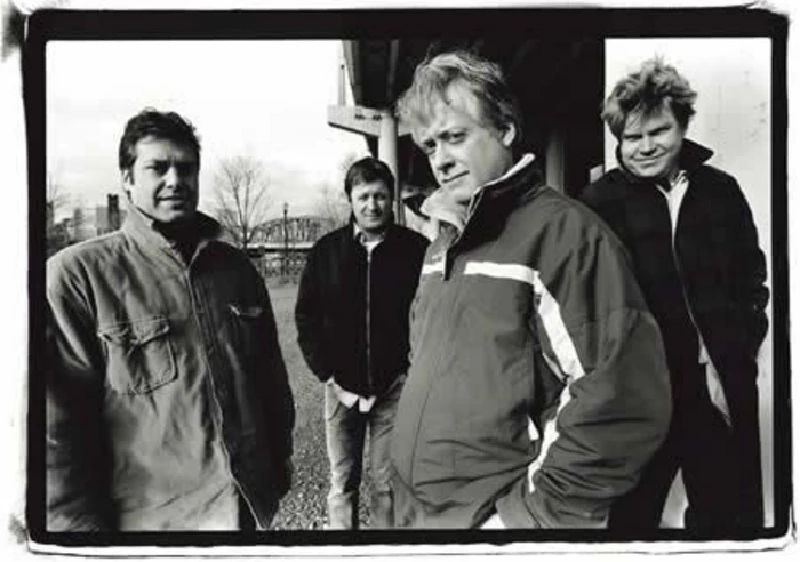
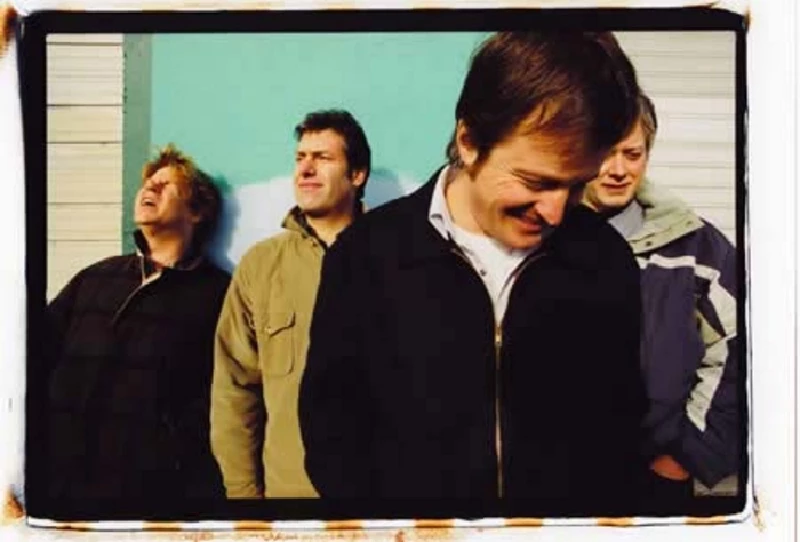
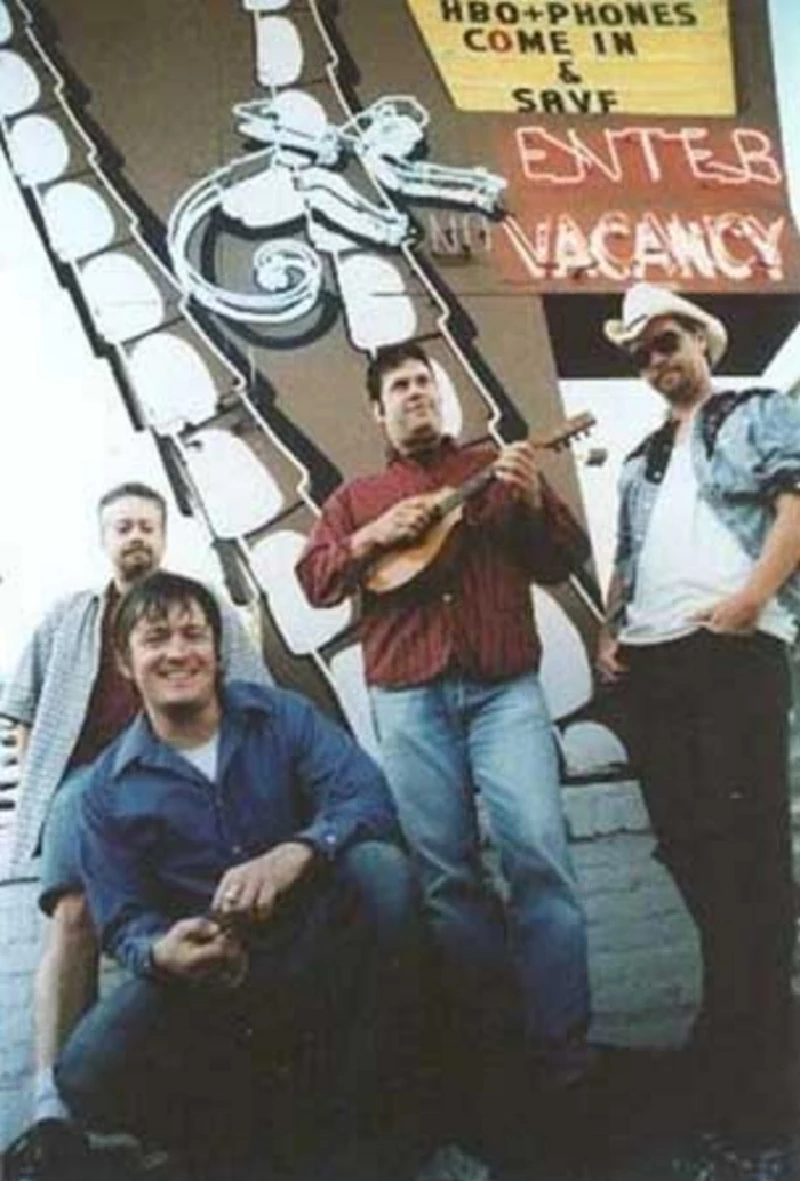
interviews |
|
Interview (2016) |
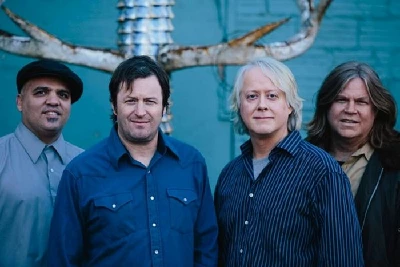
|
| John Clarkson speaks to Willy Vlautin, the vocalist and songwriter with acclaimed Portland, Oregon-based Americana band Richmond Fontaine about its tenth and farewell album, ‘You Can’t Go Back if There’s Nothing to Go Back to' |
| Interview (2009) |
| Interview (2005) |
| Interview (2004) |
| Interview (2002) |
live reviews |
|
Greystones, Sheffield, 25/4/2016 |
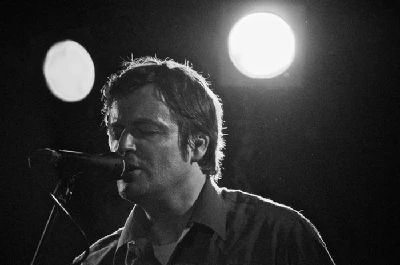
|
| Keith How enjoys Richmond Fontaine's literary Americana at a gig in Sheffield on their farewell tour |
| Luminaire, London, 22/5/2007 |
| Borderline, London, 28/9/2004 |
| Spitz, London, 25/5/2004 |
reviews |
|
We Used To Think The Freeway Sounded Like A River (2009) |
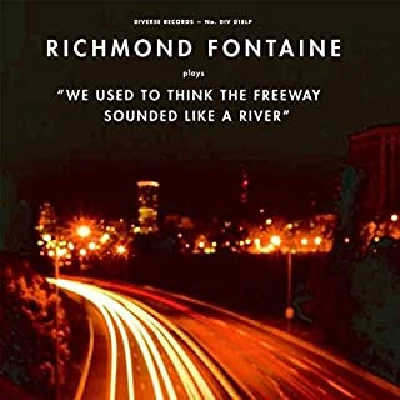
|
| Cinematic and atmospheric eighth studio album from Portland, Oregon-based group Richmond Fontaine, which, while often sadly bleak in its subject matter, is also emphatically life affirming |
| Thirteen Cities (2007) |
| Post To Wire (2004) |
| Winnemucca (2002) |
most viewed articles
current edition
Carl Ewens - David Bowie 1964 to 1982 On Track: Every Album, Every SongArmory Show - Interview with Richard Jobson
Bathers - Photoscapes 1
Visor Fest - Valencia, Spain, 26/9/2025...27/9/2025
Colin Blunstone - Thalia Hall, Chicago, 16/7/2025
Billie Eilish - O2 Arena, London, 10/7/2025
John McKay - Interview
Robert Forster - Interview
Loft - Interview
Sir Tim Rice - Interview
previous editions
Heavenly - P.U.N.K. Girl EPManic Street Preachers - (Gig of a Lifetime) Millennium Stadium, Cardiff, December 1999
Oasis - Oasis, Earl's Court, London, 1995
Beautiful South - Ten Songs That Made Me Love...
Trudie Myerscough-Harris - Interview
Pixies - Ten Songs That Made Me Love...
Paul Clerehugh - Interview
Doris Brendel - Interview
Prolapse - Interview
Simon Heavisides - Destiny Stopped Screaming: The Life and Times of Adrian Borland
most viewed reviews
current edition
Amy Macdonald - Is This What You've Been Waiting For?Sick Man of Europe - The Sick Man of Europe
Phew, Erika Kobayashi,, Dieter Moebius - Radium Girls
Alice Cooper - The Revenge of Alice Cooper
Davey Woodward - Mumbo in the Jumbo
Lucy Spraggan - Other Sides of the Moon
Blueboy - 2
Cynthia Erivo - I Forgive You
Vinny Peculiar - Things Too Long Left Unsaid
Philip Jeays - Victoria
related articles |
|
Delines: Interview (2014 |
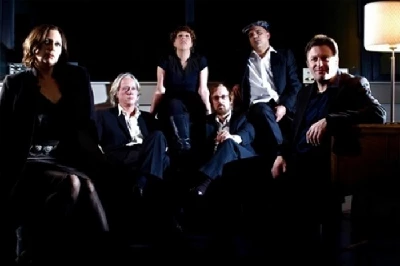
|
| Richmond Fontaine frontman and singer-songwriter Willy Vlautin talks to John Clarkson about his new band the Delines, their debut album 'Colfax', and 'The Free', his recently published fourth novel |
Pennyblackmusic Regular Contributors
Adrian Janes
Amanda J. Window
Andrew Twambley
Anthony Dhanendran
Benjamin Howarth
Cila Warncke
Daniel Cressey
Darren Aston
Dastardly
Dave Goodwin
Denzil Watson
Dominic B. Simpson
Eoghan Lyng
Fiona Hutchings
Harry Sherriff
Helen Tipping
Jamie Rowland
John Clarkson
Julie Cruickshank
Kimberly Bright
Lisa Torem
Maarten Schiethart